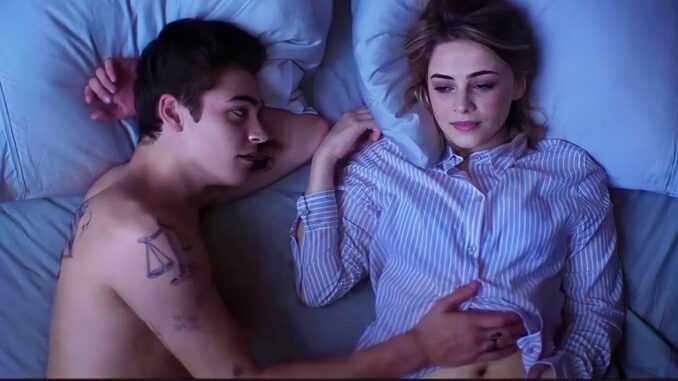
After Franchise Not Over Yet: Spin-Off Rumors Surface
The final curtain falls. The credits roll for the last time. The beloved characters, after years of epic struggles and triumphs, finally find their peace, or their poignant end. A collective sigh sweeps through the fandom, a hollow ache of closure mingled with the satisfaction of a story well told. You pack away the memorabilia, settle into the quiet afterglow, confident that the saga, for all its grandeur, is finally, irrevocably over. And then, a tremor. A whisper in the digital ether. A cryptic tweet from a former cast member. A speculative article on a niche entertainment blog. Spin-off rumors surface.
This is the Lazarus moment of modern mythology, the creative equivalent of finding out that the epic novel you just finished has an unwritten chapter, a forgotten protagonist, a hidden timeline waiting to unfurl. It’s a phenomenon that speaks volumes about the insatiable hunger for content, the enduring power of narrative, and the complex alchemy of corporate strategy meeting fan desire.
Consider "The Chronos Saga," a sprawling fantasy epic that defined a generation. For fifteen years, across three trilogies and a companion series, we followed the valiant Defenders of the Crystal of Aethel as they battled the encroaching Shadow. The last film, "Aethel's Echo," brought tears and catharsis, concluding with the Crystal shattered but its light diffused into every living being, ensuring a fragile, hopeful peace. The world, we were told, was safe, and the heroes, finally at rest. The fan forums, once buzzing with theories, settled into nostalgic retrospectives.
Then came the first tremor: a seemingly innocuous comment from a studio executive about "the enduring IP value" of Chronos. Within weeks, the whispers intensified. A LinkedIn profile update for a concept artist, mentioning "Chronos Universe Expansion." And finally, the bombshell from a usually reliable Hollywood insider: a limited series exploring the early life of Lysandra, the morally ambiguous rogue who joined the Defenders in their darkest hour, set decades before the main saga.
The internet, predictably, erupted. The initial reaction was a collective gasp, a mix of disbelief and a surging, undeniable hope. Fingers flew across keyboards, emojis exploded like celebratory fireworks, and fan art of a younger, even more enigmatic Lysandra flooded timelines. Yet, beneath the effervescent joy, a palpable tension hummed. Could it work? Would it tarnish the pristine memory of the original? Was this a genuine creative endeavour or merely a cynical cash grab, a desperate attempt to wring the last drops from a well that was supposed to have run dry?
From the corporate perspective, the answer is often depressingly simple: Intellectual Property is gold, and in the perpetual content machine of streaming wars and shrinking attention spans, a proven commodity is an alchemist's dream. A spin-off carries less risk than an entirely new concept. It arrives with a built-in audience, a pre-existing lore, and a well-understood aesthetic. It’s an extension, not a reinvention, promising a continuation of the familiar comfort that fans crave, while simultaneously opening new revenue streams and attracting fresh eyes to the franchise. The allure of the "Chronos Universe" potentially expanding into games, comics, and merchandise is too potent to ignore.
But for the creators, and crucially, for the legacy of the saga, this "not over yet" moment presents a formidable creative conundrum. How do you honor the original while forging a new path? Lysandra was a beloved character, certainly, but her allure lay in her mysterious past and her morally grey present. Explaining her origins risks demystifying her, stripping away the very elements that made her compelling. The writers face a tightrope walk: leaning too heavily on fan service risks becoming derivative, while straying too far might alienate the core audience. The challenge lies in capturing the essence of the Chronos Saga – its themes of sacrifice, destiny, and the enduring battle between light and shadow – without merely rehashing plot points or recycling iconic moments. It requires a fresh perspective, a willingness to explore the uncharted crevices of the established world, to tell a story that needs to be told, not just one that can be sold.
And then there are the fans, caught in the eye of this speculative storm. Their excitement is genuine, fueled by the desire to revisit a world they cherish, to spend more time with characters who feel like old friends. They debate every rumor, dissect every production leak, and construct elaborate theories about how Lysandra's journey will intersect with or diverge from the main narrative. Yet, intertwined with this fervent hope is a profound anxiety. They are the guardians of the saga's integrity, hyper-aware of the dangers of dilution, of a beloved narrative being stretched thin, becoming a pale imitation of its former glory. They dread the possibility that the final, perfect chord of "Aethel's Echo" might be followed by an off-key sequel, ruining the symphony of their memories.
The surfacing of spin-off rumors, then, is more than just entertainment news; it's a profound cultural moment. It signifies that in the age of infinite content, true endings are increasingly rare. Franchises, like the mythical Hydra, seem to sprout new heads even as old ones are vanquished, their narratives perpetually regenerating, evolving, and adapting. The "after" is no longer a void, but a liminal space – a fertile ground for new stories, new interpretations, and new ways to engage with the myths that shape our collective imagination. For better or worse, the curtain may have fallen, but the stage is already being prepared for an unexpected encore, an invitation to a world we thought we had left behind, reminding us that in the realm of stories, "over" is often just a polite suggestion.
